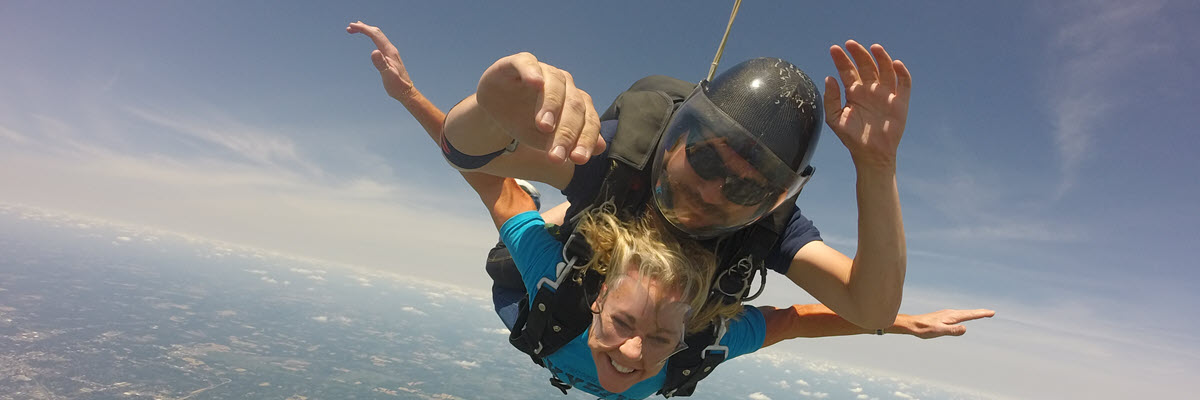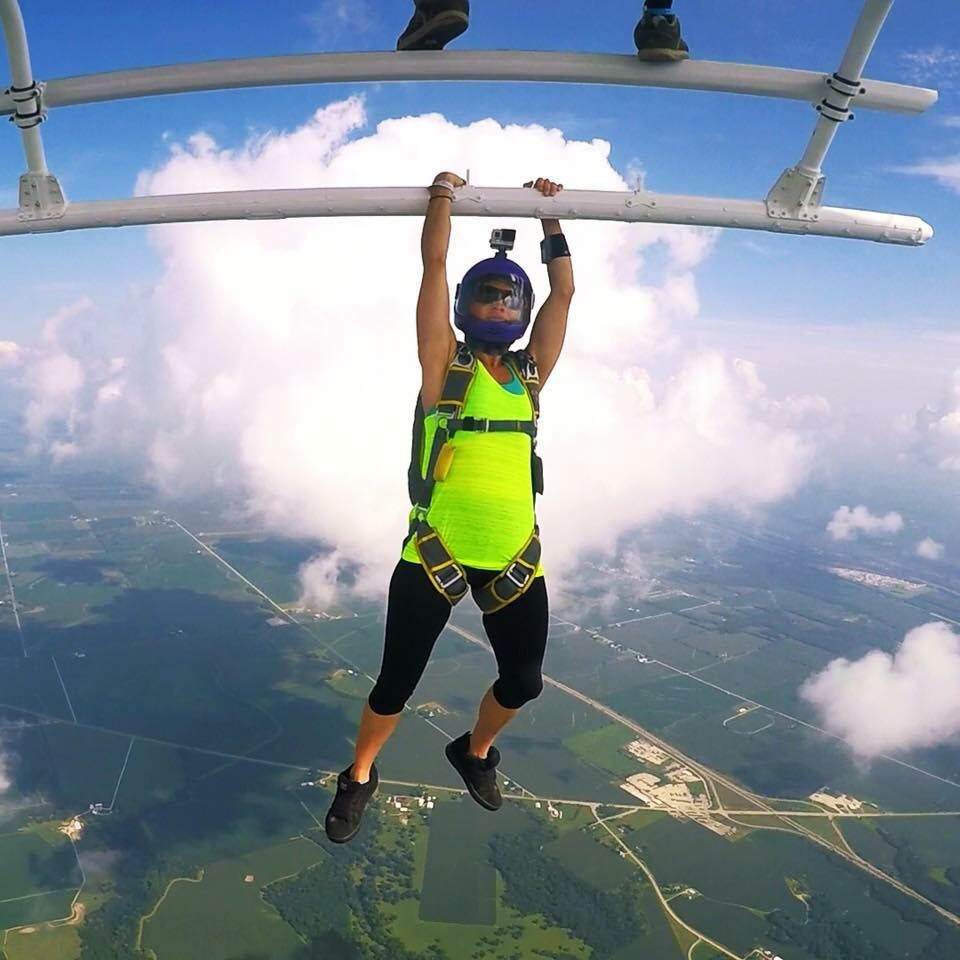- Michigan's Premier Skydiving Center
- Call Now: (517) 423-7720

How Easy Is It To Learn to Skydive?
Tuesday, February 26, 2019
- Skydive Tecumseh
- 2/26/19
- 0
- General
How long do you think it takes the average person to learn how to jump out of a plane cruising along 14,000 feet in the air, do some acrobatic tricks, deploy a parachute and conduct it safely and skillfully down to exactly the right landing area? The answer: much less time than you think.
The technology used in skydiving today has made learning to skydive exponentially easier. The advances add up to better equipment and smarter training methods. Nowadays, learning to skydive is remarkably attainable. Indeed, learning to skydive has never been easier! That means that your wildest skydiving dreams are closer to your reach than you ever thought possible. Here’s how to make them happen!
1. Start with a tandem
While making a tandem skydive isn’t a flat-out requirement in order to become a skydiver, it’s still highly recommended. It’s an excellent introduction to the sport that gives you some key “on-the-job” information that’s impossible to pass along meaningfully in written form. (Though we’re gonna try, so buckle up.) First, that first tandem skydive will teach you what freefall feels like — which is huge, because it’s a sensation that doesn’t compare to anything else on the planet. Freefall can be overwhelming to the senses, and a pre-training tandem jump helps to remove those elements of surprise. Starting with a tandem also familiarizes you with the skydiving body position, with the basic function of the equipment, with the way one approaches an open aircraft door and with the general landing pattern.
Most importantly, a tandem skydive will help you to truly know if skydiving is actually something you want to invest your time and money in. Is your hunger for the sky a wishful dream or a badass skillset you really wish to pursue? It’s good to know at the start.

2. Move on to your AFF licensing progression
Accelerated Freefall is the most modern method of skydive training. It is called “accelerated” because the progression is the fastest way to experience solo freefall — normally, from 10,000 to 14,000 feet AGL (above ground level). Our AFF course here at Skydive Tecumseh teaches you the skills you need to safely suit up on the ground, exit an airplane, deploy your parachute and land. Each successive training jump is performed alongside one or two instructors, depending on the level, and is designed to add new skills to your repertoire and to strengthen those you already have.
3. Take it inside
Lots of skydiving students struggle with stability in freefall. Luckily, these days, there’s a solution – flying in the vertical wind tunnel, which is also known as “indoor skydiving.” The wind tunnel is having a major renaissance at the moment, with new tunnels popping up all over the place, and that’s a great thing for our sport — because “indoor skydiving” allows any skydiver the ability to fine-tune bodyflight skills in a variable-controlled, weather-independent setting. Indoor skydiving wind tunnels have become essential training tools for skydivers of every level, from brand-new to super-sponsored. Sure, indoor skydiving is expensive, but it can actually save money in that it makes learning to skydive much more efficient!
4. Get started right now.
Learning to skydive will probably be the best thing you ever did for yourself. Those of us waiting for you at Skydive Tecumseh certainly uphold it as our greatest adventure, and we’re stoked to get you started on yours. Call us today!
Copyright © 2025, Skydive Tecumseh, All Rights Reserved.
DropZone Web Design & Marketing by Beyond Marketing, LLC
